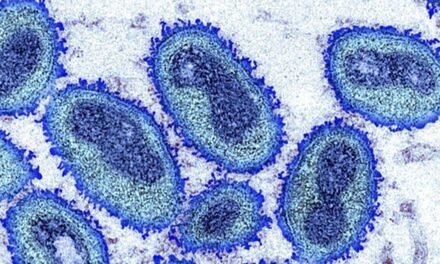Breakthrough Study Unravels Molecular Mechanisms of Viral Replication
Montreal, Canada – Researchers have made a significant breakthrough in understanding the replication process of the deadly Ebola virus, identifying a novel pathway within the human body that could serve as a potential target for drug development to combat the viral disease.
Led by Rafael Najmanovich, a professor at the University of Montreal, the study utilized a combination of experimental and computational methods to investigate how the Ebola virus interacts with a human protein known as ubiquitin.
“Our research delved into the interaction between the Ebola virus VP35 protein and ubiquitin chains using both experimental and computational approaches. By employing advanced computational modeling, we identified the binding interface between the viral protein and ubiquitin chains and pinpointed potential chemical compounds capable of disrupting this interaction,” explained Najmanovich.
Published in the journal PLOS Biology, the study not only enhances our understanding of Ebola virus replication mechanisms but also offers a promising avenue for the development of more effective therapies against the deadly disease.
“Ebola virus, notorious for its devastating outbreaks and high mortality rates, poses a significant threat to public health. Our study opens up possibilities for designing drugs capable of disrupting the viral replication process, thereby slowing down disease progression,” Najmanovich elaborated.
The findings shed light on the intricate molecular processes involved in Ebola virus replication and highlight key proteins and pathways critical to the process. One notable discovery from the study is the identification of an additional interaction for VP35, a multifunctional viral protein central to viral replication.
Furthermore, the research underscores the complex interplay between the Ebola virus and the host immune system. By evading detection and circumventing host defenses, the virus gains a foothold within the body, leading to uncontrolled replication and severe disease progression.
Najmanovich emphasized the importance of understanding the intricate workings of viruses like Ebola and developing innovative strategies to combat them. “This research underscores the significance of comprehending the complex nature of viruses such as Ebola and devising innovative approaches to counteract them,” he concluded.
The study represents a significant step forward in the fight against Ebola virus, offering hope for the development of targeted therapies to mitigate the impact of this deadly pathogen on global public health.












